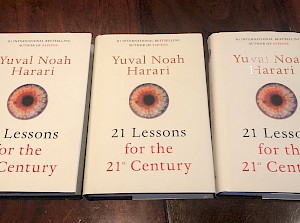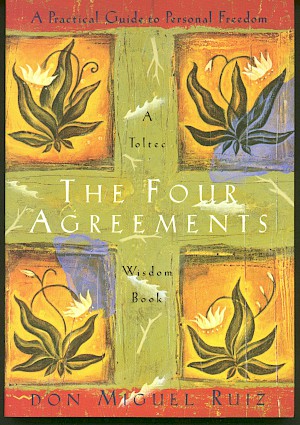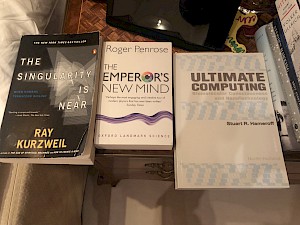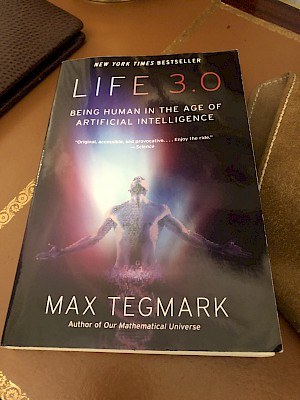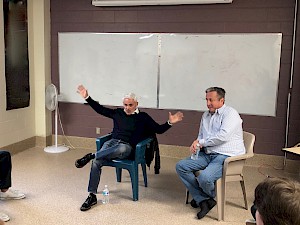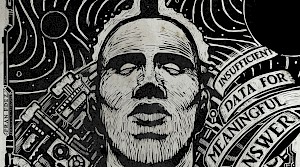Is Our Reality Someone Else’s Simulation?
October 23, 2020“I regard consciousness as fundamental. I regard matter as a derivative from consciousness.“ - Max Planck
“I must confess that I was unable to find an explanation for the atomistic character of nature. One must find a way to avoid the space-time continuum altogether, though I haven’t the slightest idea what kind of elementary concept could be used in such a theory.“ - Albert Einstein, 1954. (One year before he died.)
I believe there is a good chance that our reality is a simulation. There, I’ve said it.
But first, a disclaimer: I have spent nine of the past 20 weeks indoors in Covid19 isolation for one reason or another, be it health or travel related, so perhaps I’m just getting loopy.
What started as my decade-long interest in quantum physics, led me further down the rabbit hole to the subject of the simulation hypothesis. And the more I look into it, the more fascinating it becomes. Before you dismiss this as the equivalent of rantings of a Q-anon conspiracies or alien abductions believer, I urge to consider the scientific argument made by proponents of this theory.
The simulation hypothesis all started with a thought experiment by philosopher Nick Bostrom. In 2003, Bostrom imagined a technologically adept civilization that possesses immense computing power and needs a fraction of that power to simulate new realities with conscious beings in them. Given this scenario, his simulation argument showed that at least one proposition in the following trilemma must be true: First, humans almost always go extinct before reaching the simulation-savvy stage. Second, even if humans make it to that stage, they are unlikely to be interested in simulating their own ancestral past. And third, the probability that we are living in a simulation is probably true. He also argues that if even one civilization got to the point of creating one of these high-fidelity simulations, then they can create literally billions of civilizations that are simulated, each with trillions of beings, because all you need to create them is more computing power. If you agree with this last part, the chances that we are base reality are near zero.
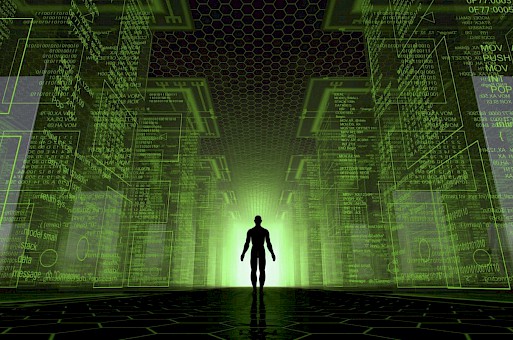 His thought experiment spawned a slew of scientists, philosophers, statisticians and nerds like me to explore the “facts” to make this idea feasible. The strongest argument in favour a simulated reality is based on the evolution of video game and virtual reality (VR) technology. In his book, ”The Simulation Hypotheses”, MIT computer scientist and video game designer Rizwan Virk explores the nature of a futuristic capacity to generate a real-life simulation.
His thought experiment spawned a slew of scientists, philosophers, statisticians and nerds like me to explore the “facts” to make this idea feasible. The strongest argument in favour a simulated reality is based on the evolution of video game and virtual reality (VR) technology. In his book, ”The Simulation Hypotheses”, MIT computer scientist and video game designer Rizwan Virk explores the nature of a futuristic capacity to generate a real-life simulation.
“Now, it’s a much more sophisticated video game than the games we produce, just like today’s World of Warcraft and Fortnite are way more sophisticated than the 1980’s Pac-Man. They took a couple of decades of figuring out how to model physical objects using 3D models and then how to render them with limited computing power, which eventually led to this spate of shared online video games.”
The key reason behind such rapid advancement over the past 40 years has been the meteoric increase of computer processing speeds. According to Moore’s Law, processing speeds pretty much double every two years. Now, two years might not sound that terribly impressive, until you look at the power of exponential math. If you double the number in steps starting at the number 2, thirty steps later you reach one billion. Although we may be reaching the limits of processing speeds using classical computers, we are getting closer to developing functioning quantum computers which could conceivably ramp up processing speeds by a factor of millions. Think how realistic VR might look like in 50 years, or 100 or 1000 years? Combine advancement in VR technology with the current speed at which we are developing artificial intelligence (AI) (read my articles Artificial Intelligence and Artificial Intelligence and the Human Journey) and you have a very convincing argument that the human experience will evolve in ways we can’t even begin to imagine.
If you don’t have time to read Virk’s book, I recommend a great video documentary you can find on YouTube, The Simulation Hypothesis Documentary. You may watch it and conclude it was 50 minutes of your life you’ll never get back, but I found it fascinating and I’ve watched it more than a few times.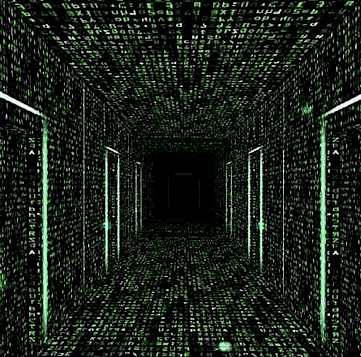
The documentary approaches the simulation hypothesis by first comparing two Ancient Greek philosophies regarding the nature of life: Materialism and idealism. Philosopher Democritus introduced the idea of materialism and stated that the atom was the basis for all reality. Consciousness, in his opinion, is a product of a material process. Plato, on the other hand, believed it is the mind itself that gives way to matter; therefore reality is borne from ideas. (Look up Plato’s Allegory of the Cave.) The documentary then connects the dots using science (Quantum physics) to make its case that Plato was right. Reality is a product of the mind; a view that gives credence to the simulation theory. There is a lot of science in this film and I will attempt to summarize here, but I strongly suggest you watch it.
The film starts by suggesting that the Big Bang which created our universe is much the same as a computer game being booted up. A video game starts from a zero state prior to which there is no information, much the same as there was no space time prior to the Big Bang. They then draw a comparison to computer code, which are made of “bits” (zeros and ones) to that of a quantized universe. According to physics, all physical reality is nothing but bits of information. Everything (time, space, energy) is quantized into indivisible packages . “It from bit”, as famed physicist John Wheeler put it.
They go on to suggest that since nature has a maximum speed (the speed of light), so do computer processor capacities. And much like the gravitational forces of large masses that dilate time, so too does high processing demand slow down computing speed.
Now, this next bit is a bit difficult to get your head around unless you have studied quantum physics. It has to do with two very wacky features observed in the quantum world that don’t correspond with what we experience in our macro world. They are indeterminacy and entanglement. Indeterminacy, in the quantum world, tells us that it is not possible to determine the state or location of a particle until it is observed. Prior to observation, it only exits in a range of probabilities. (See Schrödinger’s cat) Entanglement, or what Einstein referred to as “spooky action at a distance”, is how two particles effectively “communicate” with each other instantaneously even at great distances. This phenomenon is contradictory with Einstein’s cardinal rule, that nothing can travel faster than the speed of light.
The film also points out that all points in a computer simulation are at equal distance to one another and to the source of the simulation, that being the processor. Our universe works like a hologram where 2D information is projected on a 3D screen and where all points are at equal distance to each other. The mind-boggling thing about indeterminacy is that it implies that reality requires a conscious observer prior to existing. Before observation, it’s just a range of probabilities. This suggests that without us as a conscious observer, there is no reality. Our consciousness is a prerequisite to the existence of matter. Weird, right ? To make matters even more confusing, one also needs to get their head around what consciousness actually is and to date, no one knows for certain. (See my article Consciousness). And even then, whose consciousness is it that we are experiencing? Is it some post human civilization, or AI having created our consciousness for their entertainment or scientific exercise? Or are we in fact, the “Gods” and this reality is an elaborate means of entertaining ourselves? The philosopher, Alan Watts once proposed a cool thought experiment called, “What if when we die, we wake up?”.
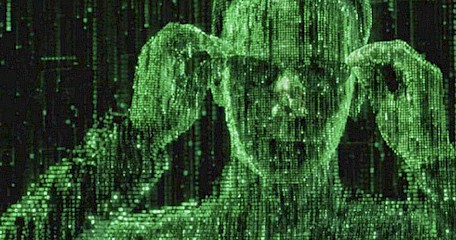 So, what are the odds we live in a simulation? Elon Musk has said that the chances we are in base reality is one in billions. Other scientists and philosophers suggest much more conservative odds. Colombia University astronomer David Kipling thinks the odds are 50/50 we are in a simulation. (See the article from Scientific American; Do we live in a simulation? Chances are about 50/50). Bostrom, who kicked off this entire debate, argues its more likely the odds are one in three.
So, what are the odds we live in a simulation? Elon Musk has said that the chances we are in base reality is one in billions. Other scientists and philosophers suggest much more conservative odds. Colombia University astronomer David Kipling thinks the odds are 50/50 we are in a simulation. (See the article from Scientific American; Do we live in a simulation? Chances are about 50/50). Bostrom, who kicked off this entire debate, argues its more likely the odds are one in three.
But how will we ever know the truth? If in fact we are a simulation, it’s likely that the “programmers” have ensured we can never know. The good news for staunch proponents of this theory is that it’s not falsifiable, because we have no way to prove by experiment or observation that it’s NOT true. On the truly wacky side, some fringe believers think that what’s known as the Mandela Effect is caused by “glitches“ in the simulation. Personally, I am not going down that rabbit hole, unless of course, I am forced to spend a few more weeks in quarantine. In that case, all bets are off.
In the meantime, in case we are a simulation, perhaps we should all endeavour to keep our masters well entertained, lest they get bored and switch us off.




